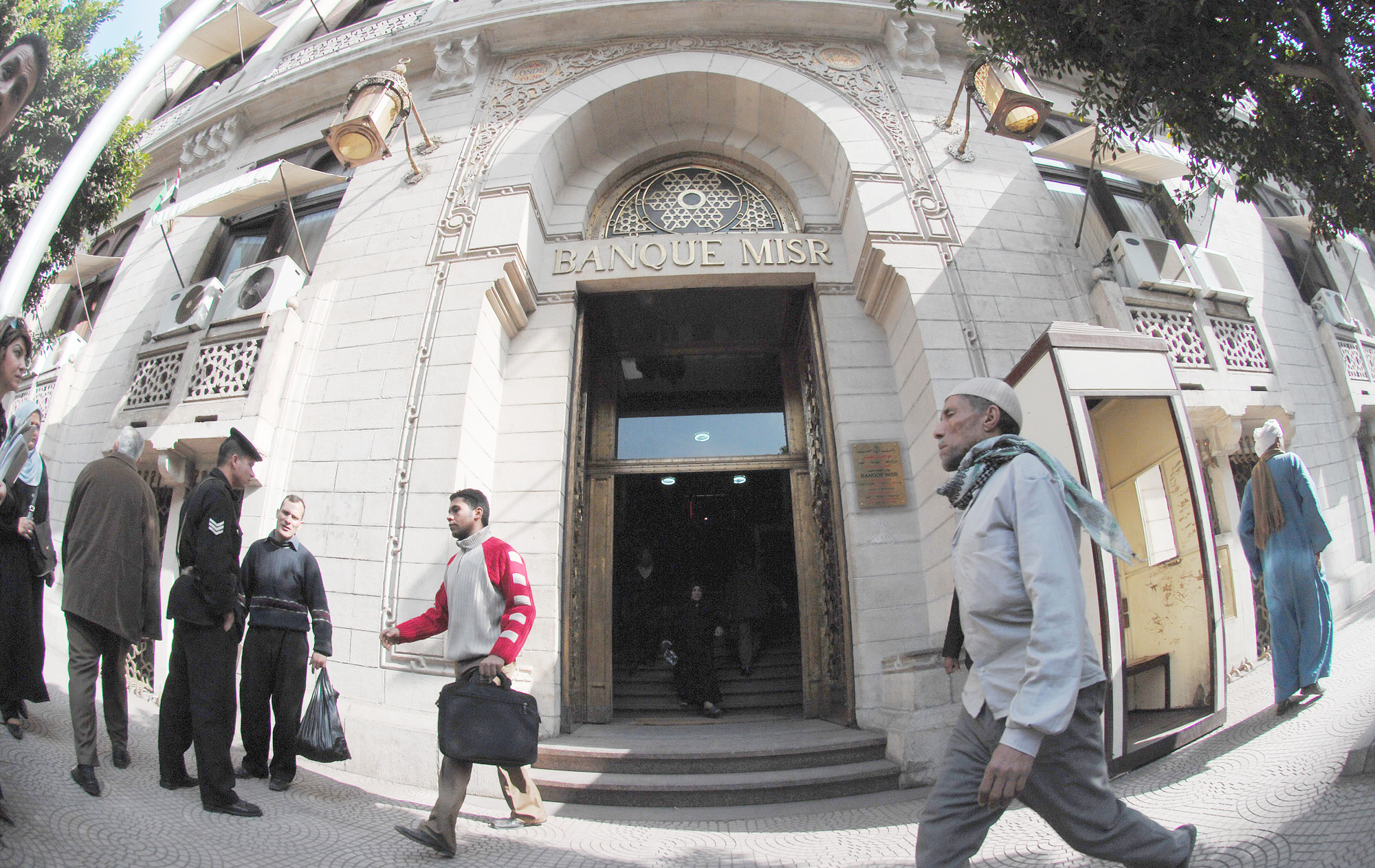CAIRO: Egypt’s prime minister said Sunday that the economic situation was worse than anyone imagined and that there was a need for austerity to rein in the burgeoning budget deficit.
"The economic situation is worse than anyone imagines," Kamal El-Ganzoury said, describing what he said were policy failings during the last decade of ousted president Hosni Mubarak’s rule.
While no new taxes will be imposed in the austerity measures, he did not elaborate on exact steps.
El-Ganzoury, 78, also said in a news conference live on state television that re-establishing security would be a priority for the "national salvation government" that he unveiled last week. At one point in his news conference, he became teary eyed as he recalled seeing "an Egyptian man on TV saying I want security, not bread."
The government would not agree to a $3.2 billion facility from the International Monetary Fund (IMF) until the outlook for the budget was clearer, he said.
"If we are forced to resort to the IMF, we will resort to it. This is a matter open for discussion," he said, echoing comments by a general from the ruling army council who had said Egypt would only go to the IMF in "extreme need."
Egypt negotiated the facility with the IMF this year but turned it down in the summer and has since sent mixed signals over whether it will take it.
He highlighted problems in the energy sector in particular, which he said was partly a result of "embezzlement over the last 10 years" during the administration of Mubarak.
"The oil sector, a real goldmine for other countries of the world, is indebted to banks to the tune of LE 61 billion," he said, adding that the finance ministry had granted LE 330 million for work in the industry since July.
He estimated the budget deficit in this financial year at nearly LE 134 billion, saying he was "looking to reduce it by LE 20 billion," or about $3.3 billion.
"To save LE 20 billion there has to be austerity, but in sectors that we feel do not affect the Egyptian citizen. I want to reduce this (budget deficit), because the deficit remaining as it is means there will be inflation," he said.
Soaring prices were among the political and economic factors that drove people on to the streets to oust Mubarak, and have ticked up again.
Urban consumer inflation rose to an annual 9.1 percent in November, from 7.1 percent in October.
Politicians and activists criticized El-Ganzoury’s appointment because he was premier in the 1990s under Mubarak, although many ordinary Egyptians see him as a man who stabilized the economy at the time and who was untainted by corruption.
The government has forecast Egypt’s deficit will be 8.6 percent of gross domestic product in the year ending June 2012, although economists expect it to be much bigger and an army official has suggested it could climb to about 11 percent.
"We must create new revenue and reduce the burden on citizens," El-Ganzoury said, adding that debt servicing accounted for a quarter of the annual budget.
"We can advance if we cooperate and speak of the real priorities: economy and security."
Economists say Egypt is fast heading to a currency crisis if it does not swiftly stabilize an economy battered by the uprising that ousted Mubarak and subsequent political turmoil, which prompted investors and tourists to flee.
Foreign currency reserves plunged to about $20 billion in November from $36 billion at the end of 2010. The vital tourism industry has seen a sharp fall in holidaymakers and foreign investors have either put investments in hold or decided to place money elsewhere.
Analysts warn the country is heading for a currency crisis as its foreign reserves dwindle, meaning it might be unable to pay its foreign import bill as early as February next year.
The IMF is projecting Egypt’s economic growth to be just 1.2 percent this year, compared with about 5 percent in 2010.
"Solidarity is needed to face the economic crisis and security problem for citizens to be pleased with the revolution," he said.
The military council appointed El-Ganzoury and his government at the end of November after a violent crackdown on protesters demanding an end to military rule. He is the third temporary prime minister since Mubarak’s ouster in February
In response to the protests, the previous prime minister, Essam Sharaf, resigned and the head of the military council pledged to transfer power to a civilian administration by July 2012.
The council also transferred wide powers to El-Ganzoury’s government in an attempt to show it had independence and that the military council would leave power — though gradually.
El-Ganzoury is himself a Mubarak-era prime minister who served from 1996 to 1999. Protesters who dislike him for his part in the old regime have been camped in front of El-Ganzoury’s office in downtown Cairo, forcing him to hold meetings at the Ministry of Planning in a Cairo suburb.






